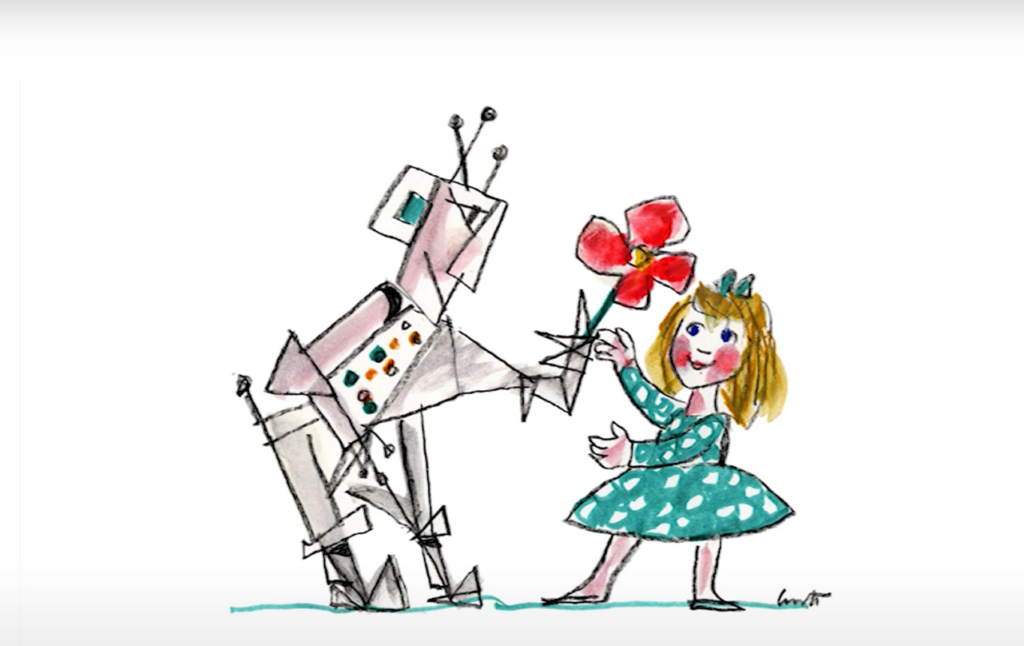ERASMUS+ KA1
The Philosophy for a Digital Age
This course is dedicated to an in-depth knowledge of the benefits and risks of digital and robotics and it is recommended for teachers and school staff from pre-school level to primary, secondary, vocational, adult and special needs education, staff of non-government organizations, government and policy makers and company staff as well as Youth Organizations.
Artificial intelligence and robotic digital tools are now commonly used at home, school, work and leisure. Sophisticated technologies that we have little or no control over are often used without knowing their potential, benefits and risks.
Participants will acquire in-depth knowledge of these technologies and related media (socials, app’s) so as to be able to communicate this knowledge to young people in a fun way, as the devices will be opened and made transparent in their operation.
Participants will become aware of the non-transparent aspects of digital technologies and the little-known functions of artificial intelligence applied to our everyday lives. They will gain more knowledge about the use of these technologies for teaching.
Arguments will be tailored on group participants.
Audience
Prerequisites
- Participants are expected to have at least B1 level of English proficiency.
- No previous experience in coding and Educational Robotics is needed
Methodology
The course will focus on educational robotics approaches to empower inclusiveness of teaching activities and learning environments.
Lessons ar based on hands-on activities accompanied by methodological and theoretical insights, presentations of good practices as well as discussions and experience comparisons.
Participants will experiment and develop inclusive robotics activities aimed at improving communication, collaboration, problem solving, negotiation, critical and creative thinking skills.
The course will include study visits to centers of excellence, workshops, reflection and evaluation.
Outcomes
- Knowledge on educational robotics approaches to empower learning environments inclusiveness.
- Acquiring competences to start applying Educational Robotics methodologies in daily activities with students as a stimulus for development of disciplinary knowledge as well as transversal skills and development of critical thinking.
- Providing and exercising creative ideas and easy to use resources for successful implementation of robotics projects in the classroom.
- Improving participants’ digital competences.
- Improving English fluency (official language of the course).
- Increasing intercultural awareness.
- Sharing experiences and develop wider networks in order to develop future partnerships and projects.
- Strengthening the European collaboration among people involved in creating inclusive learning environments and providing insights into different education systems.
Course program
After registration
Participants will receive a pre-course survey which will be used by the trainer to learn about participants’ teaching backgrounds and to assess their exact needs. (target of learners, coding knowledge, kits owned, ..)
Before the beginning of the course:
- 1 hour – preparatory online webinar on course contents (basic readings and simple activities will be suggested to participants to prepare for the training).
- Participants will be asked to prepare a presentation about themselves, their professional context and their culture, to be presented on the first day of the course to facilitate networking opportunities.
- Participants will receive information about the hosting country in order to prepare them for their cultural experience.
The course program (6 days)
-
- Introduction of participants, outline of the programme, warm ups and icebreakers
- Workshops (instruments used will vary on the basis of the group of participants):
- Let’s find out how app programming works
- Find out how programming a robot works
- Let’s open the black box of social, messengers and media
- The cognitive bias
- Discovering the bias in the social media
- The docufilm “The Social Dilemma”
- The profiling of our online activities
- The right to privacy, identity
- Contrasting cyberbullying
- Online tools for collaboration in education projects, eTwinning, School Education Gateway,
- Individual support
- Lectures/documental materia:
- Edward Herman and Noam Chomsky, Manufacturing Consent
- The docufilm “The Social Dilemma”
- Social Robotics and Persuasive Technologies, by Fabio Fossa: https://www.scuoladirobotica.it/en/social-robotics-and-persuasive-technologies/
- The Euron Roboethics Roadmap: https://www3.nd.edu/~rbarger/ethics-roadmap.pdf
- Final Session:
- Presentation of outcomes, discussion,
- Evaluation.
- Cultural and social program
- Networking activities
- City tour and/or a cultural trip
- Cultural evening
- Visit to AI and robotics sitesß
- Team building
Follow up
- Participants will experiment ready to use activities to facilitate sharing of what they have learned with the rest of the staff in their schools.
- Further materials to deepen the topic will be suggested.
- 1 hour Follow up/Question time Webinar will be organised after 6 month to share results and strengthen participants network.

Other informations
Lesson timetable
Certificate
Each participant will get a course attendance certificate and we will validate the acquired competences also on the Europass Mobility upon request.
Cultural activities
OID: E10131490
Fee
The course fee includes tuition and materials for the course sessions as well as the cultural and social programme.
COST: €540
Subsistances
Available dates
Genova
- 20/06/2022 – 25/06/2022 To be confirmed
PRE-REGISTER FOR THOSE DATES
Sessions will be confirmed only when the minimum number of participants is reached.
For groups with at least 8 participants, we can organize an ad-hoc session in a different language. Please write an email to info@scuoladirobotica.it to get more information about it.

